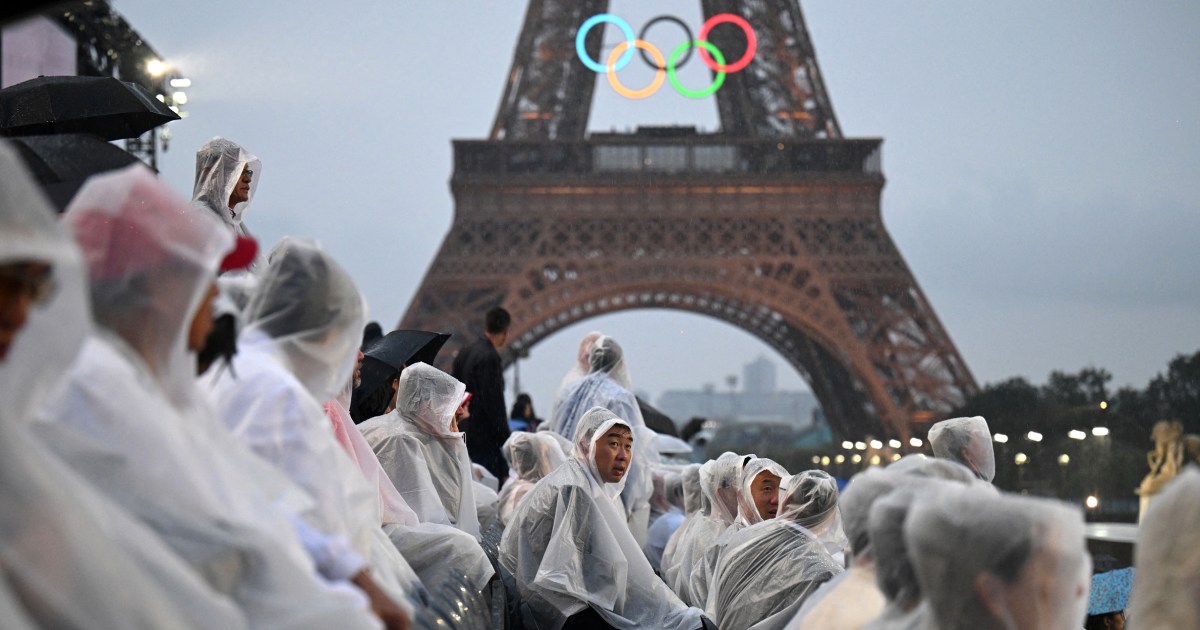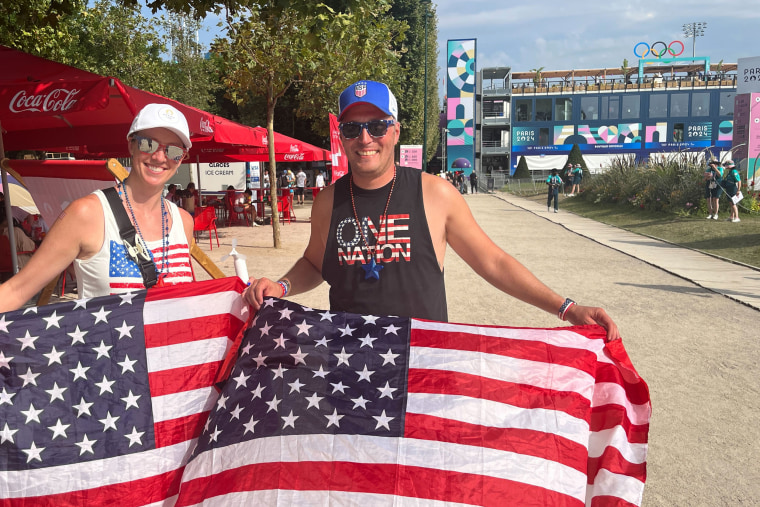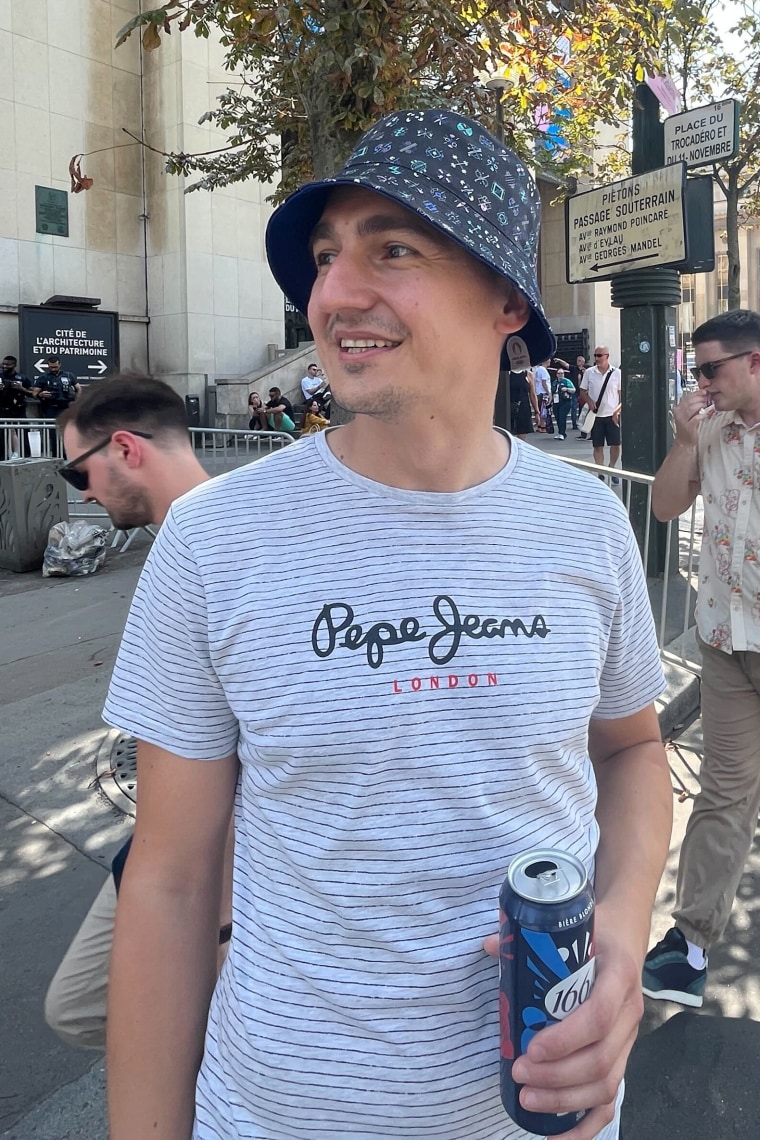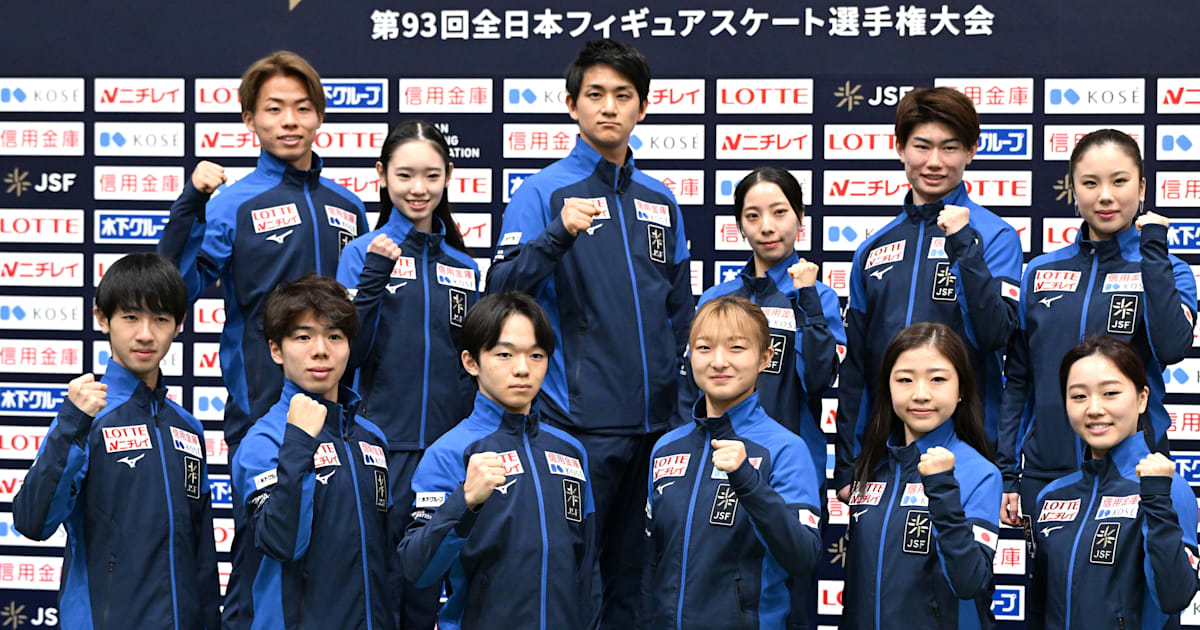Sports
Americans at Paris Olympics dumbfounded over no alcohol at sporting events

PARIS — It’s golden hour at the Eiffel Tower, crowds are starting to arrive for the evening’s beach volleyball games at the Paris Olympics, and Dan Lowther is ready to sit on the grass and enjoy a cold beer.
Except he can’t.
Not here, not at any of the other Olympic venues dotted around the center of Paris. They are all dry, a conscious decision by Paris 2024 to only offer soft drinks or nonalcoholic beers for regular ticket-holders. The only place you can score a drink: the VIP lounge.
“We’re in Paris, and there’s not even any wine?” said a good-natured but incredulous Lowther, 57, a UPS sales manager from Albuquerque, New Mexico. “We’ve been walking up and down each side saying, ‘Well maybe there are a few tents up there that might sell something.’ But no.”
Follow along for live coverage
Tiffany Thompson, 36, and Levi Overdorff, 34, from Pittsburgh, were similarly dumbfounded.
“We went to the soccer match between Israel and Paraguay the other day and I said to her, ‘This is going to get pretty crazy,’ but when we got inside … no booze!” Overdorff said, throwing up his arms.

“Every other sporting event we’ve been to, they’ve served alcohol; when we go to see Steelers games, they even have cup holders in the seats,” Thompson added. “Of course, we can get by without. It just would have been a little more fun, especially on a hot day like today, to have a nice cold beer out here.”
Although many people say they did not know about it until they came through the turnstiles, these Olympics have never made a secret of their abstemious policy.
It stems from a 1991 French law limiting the sale of alcohol and tobacco at large events, an attempt to combat substance abuse. Each sports organization can sell alcohol at up to 10 events per year.
As the Olympics contains more than 700 events, it would have had to apply for an exemption. But unlike the Rugby World Cup held in France last year — which successfully applied for an exemption and sold booze at matches — the Olympics chose not to.
“Such an exemption would have required a change in the law for an event the size of the Games,” a Paris 2024 spokesperson said in an emailed statement.
Tuesday neared 100 degrees here, for some the type of weather befitting a cold lager or a glass of rosé with an ice cube. Regular ticket-holders at the Eiffel Tower didn’t need to imagine what this might look like; they could see people enjoying the fully stocked bar inside the glass-walled hospitality tent, where tickets go for as much as $475 for a three-hour volleyball session.
On this discrepancy between the haves and the have-nots, Paris 2024 said it “is not responsible for the difference in the rules governing the sale of alcohol in the stadium and in hospitality areas.”
Private catering services that run the hospitality lounges are able to serve alcohol “as they are governed by a separate law on catering,” it said. “It is not for Paris 2024 to comment on this application of different laws.”
It’s not just Americans caught off guard. Near the Trocadéro, a venue on the other side of the River Seine, Petr Petrovic and Milan Nagovanic have taken matters into their own hands by cracking open a few cans of the popular beer Kronenbourg 1664 outside the fence.
“We just went and got these from the store,” said Petrovic, 34, swigging his tin in the beating midday heat. “But we were definitely surprised,” said Nagovanic, also 34.

While many people enjoy a casual drink, that’s not always the case. According to estimates by the French Public Health Society, 49,000 people are killed a year by alcohol consumption, which also causes 120 billion euros in damages. (In the U.S., the Centers for Disease Control and Prevention estimates this figure is 178,000 per year — lower than France proportional to its population.)
And, of course, there are many people who either don’t care or are actively in favor of the ban.
“I think it’s a good thing because it means the Games are more family-friendly,” said Pascal Marceillac, 50, a music professor from Paris. “Other sporting competitions serve alcohol, but the Olympics is different. It has a different spirit.”
But rightly or wrongly, for others alcohol is an integral part of live sports.
“We’re not talking about getting hammered, and once you’re inside the venue the atmosphere will be great anyway,” Lowther said. “It’s just that a beer or a glass of wine on the grass right now would be perfect. The lack of alcohol is odd,” he added. “I think it’s a fundamental part of sports.”
The food and drink at the Eiffel Tower Stadium, and 13 others, is being provided by the French catering company Sodexo Live! NBC News spoke with half a dozen Sodexo servers at the Eiffel Tower Stadium, all of whom said they have received some level of pushback from customers on learning that there is no alcohol.
“We have had a lot of complaints — every day,” said one, who, like all of them, declined to give their name because they did not believe it would be allowed by their company. “People are really unhappy about it.”
After interviewing a few dozen people about this issue over multiple venues, the overwhelming consensus is rather more moderate. People are certainly surprised, and often sorely disappointed, but few are letting the prohibition spoil their experience.
“We went to a bar beforehand and we’ll be going out after,” Annie Curley, 32, from Louisiana, said. “Although if we’d known, maybe we’d have had one more drink before coming here.”










